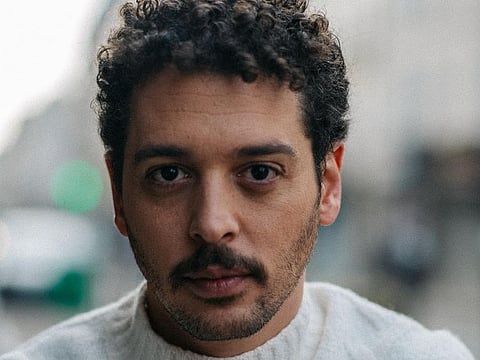All about the new thriller 'Inshallah A Boy': Jordan’s Oscar entry in UAE cinemas
Director Amjad Al Rasheed discusses his debut film and why he's a filmmaker on a mission

Director Amjad Al Rasheed’s debut film, 'Inshallah A Boy', a highlight of the film festival circuit and Jordan’s official submission to the Oscars this year, shines a spotlight on the patriarchal system that favors men over women.
Now showing in UAE cinemas, this stirring tale follows a young widow, played by Palestinian actress Mouna Hawa of 'Fauda' fame, who pretends to be pregnant with a son to evade inheritance laws that are unfavorable to girls in Jordan.
In an exclusive interview with Gulf News, Amjad shares that the film stems from a deeply personal place.
"The idea for this film was inspired by a woman close to me. She found herself in a situation much like my main character, Nawal. My close friend dedicated her life to her family and daughter, but when her husband passed away, his family wanted to claim a share of the inheritance," said Al Rasheed, sparking a broader conversation about the precarious rights of widows in Jordan.
"We wondered if it’s possible for a woman in our society to challenge certain laws or what her options might be. All these questions fueled the idea behind Inshallah A Boy," he added.
The movie, which premiered at this year’s Cannes Critics Week and scooped over 30 awards in various film festivals, revolves around a Jordanian housewife who might lose her home and daughter after her husband dies, due to local laws and customs that deny inheritance rights to women. He believes his film connected because it touched upon some universal themes such as resilience in the face of injustice, the struggle for equality, and the love of a mother willing to go to great lengths to protect her child.
“It’s a human story and follows a character and her struggles. It was not my intention to do a woman-centric film. I wanted to tell a societal story because this struggle does not affect women alone … Perhaps my thriller might make many think about some laws that need to be re-evaluated and how they affect our daily lives.”
The movie plays out like an edge-of-your-seat thriller, according to the superlative reviews from the festivals.
Al Rasheed, who had just picked up the audience award at the recently concluded Amman Film Festival at the time of this interview, believes his decision to make an engaging thriller about a grim topic worked. His goal was simple: Make a film where characters and struggles were relatable.
“It was a big moment for me as a filmmaker to win the audience award at the Amman International Film Festival because the film is coming back to the Arab world for the first time. This film was made particularly for the Arab audience … Therefore, I am so excited to enjoy a theatrical release in the UAE, Saudi Arabia, Egypt, and soon in Tunisia. Our journey began with the Cannes Critics Week, and this crazy journey has reached a place where I am got the audience approval in Jordan.”
This celebrated director was also determined to show women in a feisty light and not as victims of their surroundings. He wanted his film to be an example of “social realism.”
“Jordanian women, through my research, are all strong and fighters … They often find creative ways to deal with society and survive even if wronged … So I refused to show Nawal in a weak position where she surrenders to domination. The women in my film know how to fight for their rights. I didn’t want to turn their problems into some melodramatic piece.”
True to his word, Nawal played on-point by Palestinian actress of Fauda fame, Hawa, is the portrait of grit as she becomes widowed and faces the possibility of losing her home and daughter because she doesn’t have a son.
“The character has been dealing with inequality for a long time, but this film shows that she has a way around her struggles.” He set aside six years of his life to write and finance this passion project. According to him, the financing of a film is tough, but not as hard as coming up with a solid script.
“Budget is important, but a budget will do nothing if the writing is not complete and the characters are not strong. A good movie is always a combination of financing and good writing … Plus, I have always wanted to tell a story that’s close to my heart and reflects issues that I want to discuss. My cinema should be a reflection of me.”
Don't Miss It!
‘Inshallah A Boy’ is out in UAE cinemas now
Sign up for the Daily Briefing
Get the latest news and updates straight to your inbox



